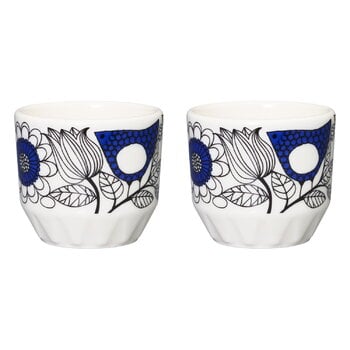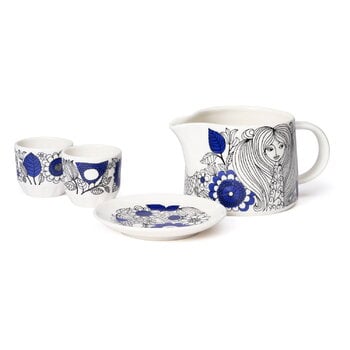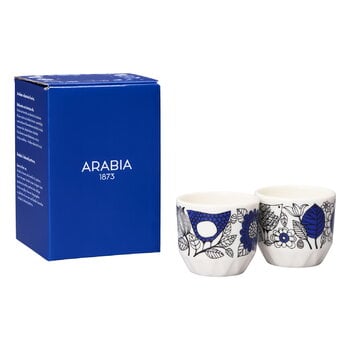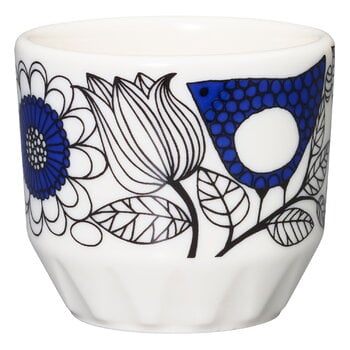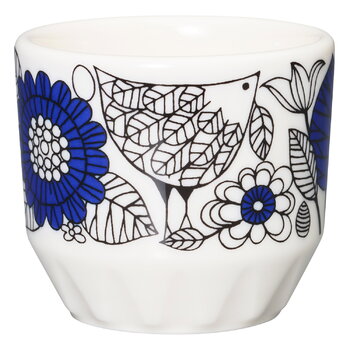Arabia’s Pastoraali egg cups are adorned with an organic pattern by Esteri Tomula. If eggs are not a staple at your breakfast table, you can also use the little cups for serving vitamin shots! The egg cups are sold in a set of two.
The Pastoraali pattern was originally designed in 1965. Featuring flowers, leaves and birds, the pattern was given a deep shade of blue since the new silk screen-printing technique allowed the use of bright colours. The rich pastoral landscapes have been printed on white, clean-lined ceramic tableware.
